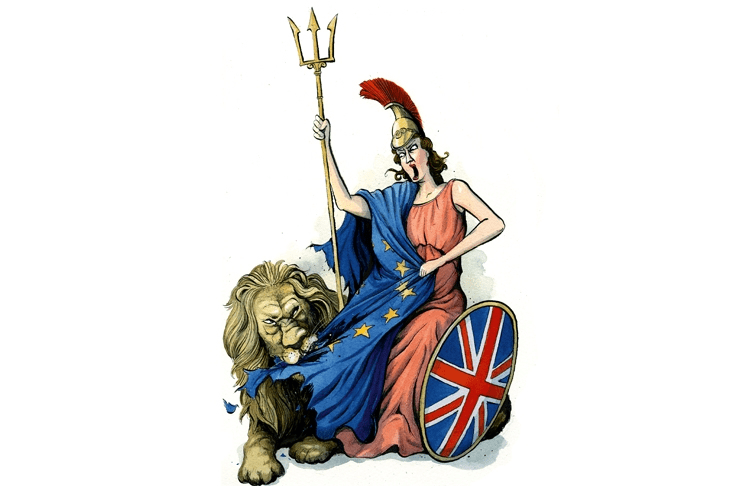The collapse of talks to renew a trade deal between Britain and Canada is a reminder that there is nothing automatic about Brexit. If we want to benefit from it we will have to make an effort, and approach matters like trade from a very different angle to the EU. At the moment, there is scant sign of that. Rather, Britain seems to be merely reinventing itself as a mini-EU: a European-style social democracy which is high on regulation and protectionist by instinct.
If we want to enjoy the full, wealth-creating forces of free trade then we are going to have to be prepared to make concessions
Following Brexit, Britain’s trading arrangements with Canada remained, temporarily, as they were under the Comprehensive Economic Trade Agreement signed between the EU and Canada in 2016. However, the terms expired on the last day of December and talks as to what should replace them have broken down. The sticking point seems to be demands from Canadian food producers for more access to UK markets, and a lifting of the ban on beef from cattle which had been treated with hormones – the latter a classic EU trade barrier disguised as a health and safety measure.
But it seems that Britain was not prepared to budge, instead wanting to carry on restricting imports of Canadian beef on the basis that liberalisation of trade might make life more difficult for UK farmers. If that is the attitude with which we are going to approach global trade we are not going to get anywhere; the most we can hope for is the same terms of trade that we enjoyed under EU membership.
If we want to enjoy the full, wealth-creating forces of free trade then we are going to have to be prepared to make concessions – and that means opening up our food markets. True, that might make life more difficult for UK farmers because they will have to compete with imports, but on the other hand it would mean more choice and cheaper food for UK consumers. If UK farmers struggle to compete with Canadian producers – who obviously have to bear the additional cost of shipping their product across the Atlantic – then it is time to look at some of the other cost pressures on UK farmers, not least through regulation.
This week, a French environmental journalist wrote of the astonishing bureaucracy which is imposed on farmers in that country as local, regional, national and EU agencies each impose their own, often conflicting rules. What a farmer has to do to please one agency might well earn him a fine from another agency. The rules for egg producers, he said, ran to 167 pages, and laid down the exact width of every door in a hen cage. There are 14 sets of regulations which govern hedge-cutting. This is the mentality which Brexit gave us the opportunity to escape, but as yet there is scant sign that the present government is intending to take advantage. On the contrary, we’ve hit farmers with some environmental and animal welfare regulations of our own.
If that is how we intend to continue there really wasn’t any point in leaving the EU. We will be doomed to live on as an EU clone, but without the benefits of belonging to the real thing.







Comments